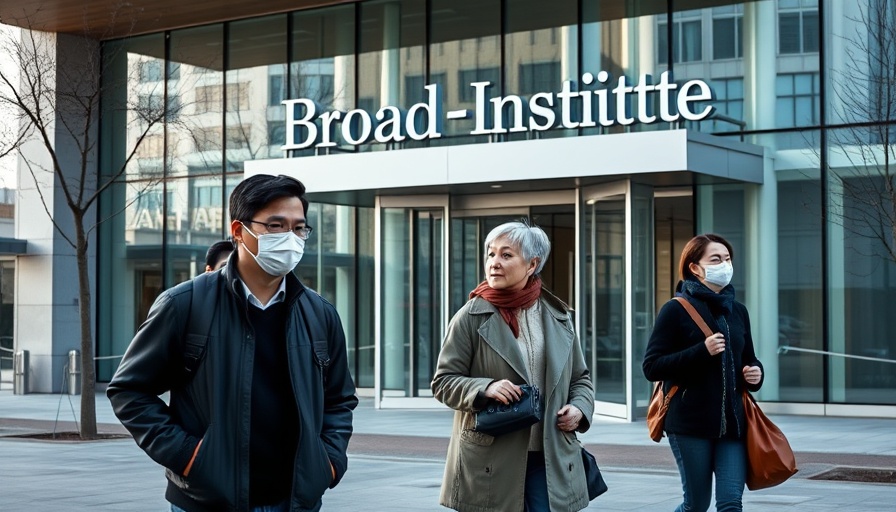
The Broad Institute’s Layoff Decision: A Sign of Larger Trends?
The recent announcement that the Broad Institute, a renowned research center affiliated with Harvard and MIT, is laying off 75 employees shines a light on ongoing challenges in the biomedical research community. These layoffs, though representing less than 4% of the workforce, primarily affect administrative roles, indicating a tightening budget in the face of projected cuts to federal medical research funding.
As funding sources dwindle and economic pressures build, even prestigious institutes like the Broad are not immune. David Cameron, the institute's director of external communications, expressed the difficulty of the decision while emphasizing its necessity for future scientific investment. This sentiment underscores the harsh reality of budget constraints that have led to similar layoffs across the Boston area, including Boston University’s recent cut of 120 employees and Harvard's hiring freeze.
What This Means for the Future of Biomedical Research
The implications of these job reductions extend beyond the individual employees affected. They reflect broader trends in the research community that may hinder future innovations. As institutes tighten their belts, the focus shifts from groundbreaking discoveries to simply sustaining operations. This can stall critical research efforts that pave the way for understanding and treating diseases.
Support for Affected Workers: Navigating Tough Times
In light of the layoffs, the Broad Institute is offering professional outplacement services to assist those impacted in finding new employment opportunities. This support is crucial as the job market becomes increasingly competitive, especially within specialties that require advanced degrees and specialized skills.
A Call to Leaders: Investing in Science and Jobs
As these layoffs resonate throughout the local research community, it is essential for leaders in both government and academia to emphasize the importance of sustained funding for biomedical research. Investing in scientific exploration not only fosters innovation but also supports economic growth by creating jobs and retaining talent in the region.
In conclusion, as Boston's research institutions navigate this challenging landscape, the focus on both immediate budgetary constraints and long-term investments is crucial. It remains to be seen how these adjustments will shape the future of biomedical research in the region.
 Add Row
Add Row  Add
Add 




Write A Comment